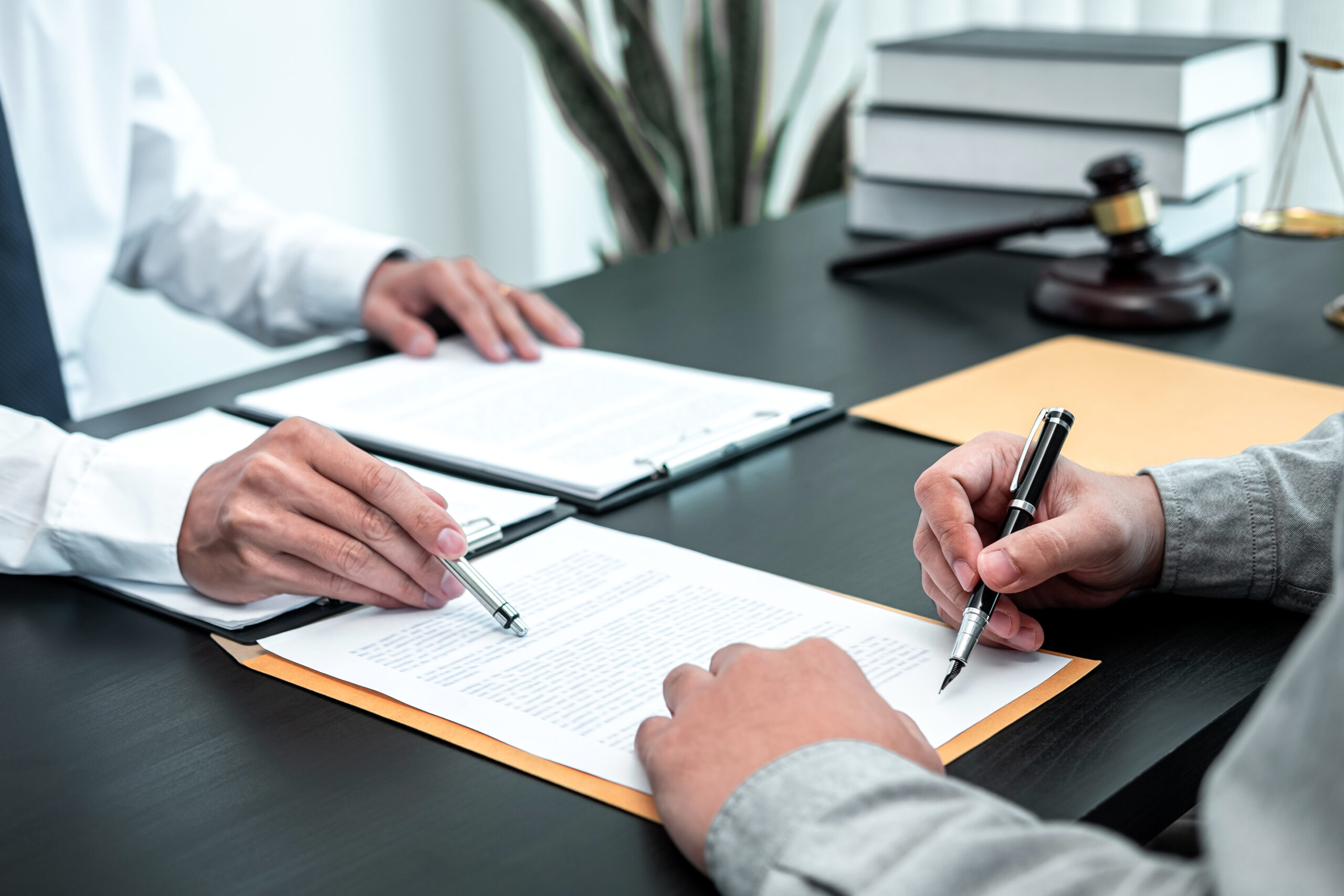Negotiating A Settlement Or Going To Trial: What’s Best For Your Personal Injury Claim?

If you have been seriously hurt in an accident – a car accident, or a bad fall, or something else – that was someone else’s fault and not your own, you have the legal right to seek monetary compensation from the other party’s insurance company via a lawsuit. However, doing so can be complicated, and there are many steps to take and decisions to make along the way.
One of the decisions you may have to face is whether to accept a settlement offer or take your case to court. Particularly if you have had little to no dealings with the legal system, this may be confusing for you. As personal injury lawyers who have been serving Florida for almost 40 years, we have advised hundreds of clients regarding this matter. Your lawyer may also advise you one way or the other, but ultimately, it’s up to you!
Here are some considerations to keep in mind that can help you make an informed choice:
Negotiating A Settlement
When you have a claim, the first step will be to work to resolve it with the other party’s insurance company. The vast majority of personal injury cases settle (resolve) during this stage. An offer is made by the insurer, the plaintiff accepts it, and that is that. Available statistics tell us that about 95% of these types of cases are resolved in this way, with a pre-trial settlement. There are many reasons why that number is so high!
For one thing, negotiating a settlement is much faster than going to trial. A trial can take months or even years to prepare for, and then there is the possibility of an appeal or a mistrial that could drag the process out even further. If you’re not able to work because of your injuries, or are waiting on monetary compensation in order to move forward with your life, that’s a long time! Settling can happen within a few short weeks or months.
For another, lawsuits are public and stressful. You’ll have to relive the accident many times in depositions during the discovery stage, and possibly in court. You’ll be questioned, and in many cases, your story or integrity will be questioned in front of other parties by the defending attorney (which can be an uncomfortable experience at best and a humiliating one at worst).
Finally, lawsuits are risky. The outcome of litigation is uncertain; sometimes, during the discovery or course of the actual trial, evidence comes to light that can hurt your case, or you can be pressured into saying something you don’t mean, and ultimately you never know what a judge or jury will do! If you lose at trial, you get $0. Negotiating a settlement is a sure thing – you agree on the terms and then receive the amount promised.
From an attorney’s perspective, settling is also much less costly, so even if going to trial is in your best interests, some attorneys will still try to convince you to settle because it is better for them (and that’s why it’s important to research and trust your representation).
Going To Trial
So, what are the circumstances where going to trial would be in your best interests?
Well, plaintiffs tend to win more at trial when they win than receive in a settlement. A situation where the costs of your injuries are astronomical, the evidence to show that the other party was at fault is clear and plentiful, and the insurance company is still not willing to give you a reasonable amount to cover the costs of medical treatment and lost wages is one where a trial is likely to work out in your favor.
If who is at fault is not clear, or the settlement offered is reflective of what most of your bills cost, then you should probably take the offer – at trial, you could get nothing.
An attorney should be able to value your injuries and let you know what a reasonable offer looks like.
Another situation where you should consider going to trial is if the other party was grossly negligent – like, if the other driver was proven to be intoxicated at the time of the crash, or was street racing. Not only will there likely be criminal charges against them that can make your own case stronger, but the jury or judge in a trial may be inclined to award you punitive damages (damages designed to punish the defendant and set an example for others) or damages for pain and suffering (the non-economic costs of your injuries). Most settlements don’t take either of these categories into account, so, in this case, you would likely benefit more from going to trial.
You Need A Lawyer Who Can Do Both
Many personal injury lawyers only work in settlements. Because of all of the advantages of settling to them – it’s not as many hours of effort on their part, and it is a guarantee of payment (because most personal injury lawyers only get paid when their client recovers damages – sometimes lawyers will encourage clients to settle even when their chances of winning at trial are good. Now again, this isn’t all selfishness on the part of the lawyer. Trial is always a risk, and some firms just don’t have the expertise or experience or bandwidth to be able to feel confident that they’ll achieve a verdict for their client.
But if going to trial is in your best interests, you need an attorney who will tell you so, and who is able to handle taking you through the process!
The Florida Law Group isn’t afraid of going to court if that’s what it takes to win what you deserve. We’re dedicated to winning, and because of our extensive experience in both negotiating personal injury settlements and getting verdicts at trial, we are well-equipped to help you make the decision. Call today to schedule a free consultation and learn more about what we can tell you about your case!


